Author: Communication Department
On 5 November 2019, TRIAL International had the opportunity to address the United Nations Security Council regarding the situation in Bosnia and Herzegovina—a rare privilege for a civil society organization. Through the voice of its Head of Program in Sarajevo, TRIAL International gave a nuanced picture of the progress made in the field of justice for wartime victims in the country.
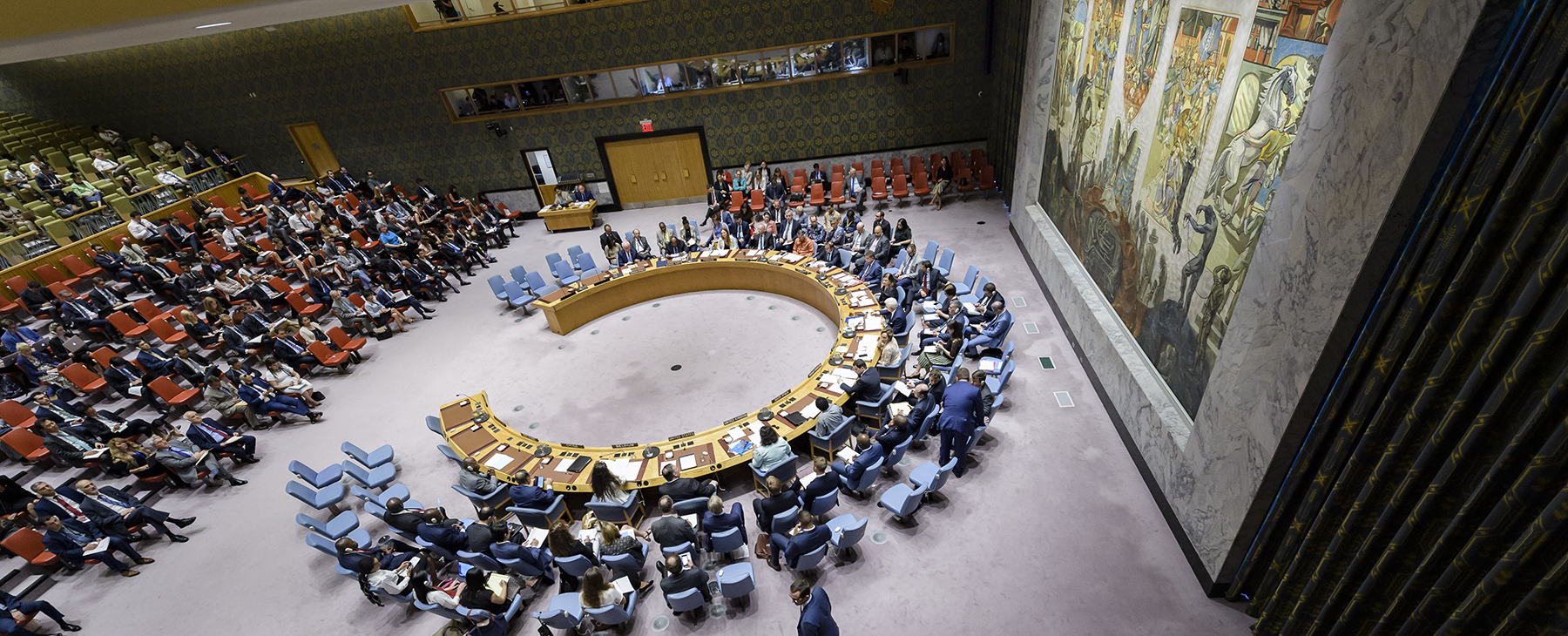
“Where does Bosnia and Herzegovina stand today when it comes to dealing with the past?”, asked Selma Korjenić, Head of the Bosnia and Herzegovina Program at TRIAL International, as her opening remark. “For the average tourist coming for a short visit, we are a country of great natural beauty with a rich cultural heritage (…) But, we are also a country where some of the worst atrocities in Europe happened since the Second World War. We are a country where everyday life is profoundly affected by the war, which ended 24 years ago. We are a country still carrying a heavy burden from the past.”
With these words, TRIAL International wanted to share its vision of the situation in Bosnia and Herzegovina as regards justice and reconciliation. The Security Council’s invitation is a recognition of the long-term work done on the ground with survivors. On account of its presence alongside war victims for the last 12 years, the organization is in a prime position to not only notice improvements but also identify challenges that the country must still face.
Historical denial creeps into the public sphere
As is the case of so many other countries, Bosnia and Herzegovina is experiencing a rise in nationalistic rhetoric. TRIAL International raised concerns about the denial of war crimes and genocide in the public sphere, which occurred frequently when the victims of these crimes were of the opposite side during the war.
Moreover, public spaces are named after war criminals, the portraits of some are held up during demonstrations and political rallies, and others still are glorified in textbooks. Some even exercise official functions, such as the war criminal who was convicted and then elected mayor of a town in the west of Bosnia and Herzegovina. As for the authorities, they seem in no rush to put and end to the historical denial. In the words of Selma Korjenić: “Three generations have now tasted the poison of hatred. Very little is done to prevent the same fate happening to the next.”
TRIAL International took this opportunity to call on the United Nations to demand compliance with court decisions, regardless of whether the courts are national or international, in order to ensure that denial of war crimes is banned and that reparations for victims are more than empty words. However, the organization also sent a message of hope regarding the capacity of the civil society in Bosnia and Herzegovina to build bridges across the divides created by the war.
Read the full speech by Selma Korjenić before the Security Council
On 30 October 2019, Radomir Šušnjar, also known as “Lalco”, was found guilty for the murder of 57 Bosniaks in Višegrad, a town in the east of Serbian Republic of Bosnia. These people were burnt alive in a house in Pionirska Street in 1992. The Court of Bosnia and Herzegovina sentenced this former Bosnian Serb soldier to 20 years of prison.
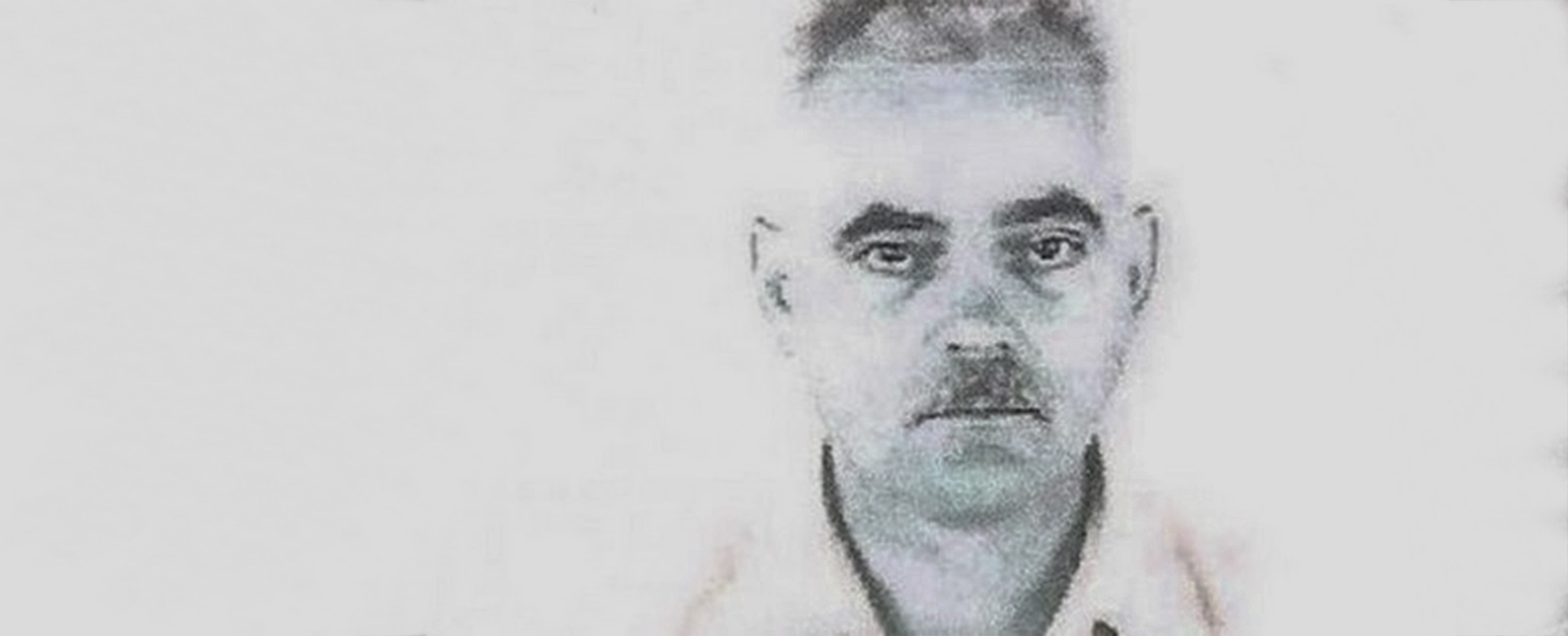
“Justice has finally caught up with Radomir Šušnjar”, said Philip Grant, TRIAL International’s Executive Director. “Despite his attempts to escape it, it is now time for him to face his actions, committed more than 27 years ago.”
In June 1992, the victims, mostly women, children and elders, were locked away in a house in Pionirska Street in Višegrad, and burned alive. Those who tried to escape, were killed with guns on the spot. Only several persons survived or were able to escape the certain death.
The eight survivors, two of whom died a few years later, were able to testify before the International Criminal Tribunal for the former Yugoslavia in The Hague. “Lalco” is accused of personally locking the room where the civilians were, and of setting the building on fire.
On the run for more than two decades
After the war, Šušnjar was hiding in France for many years. TRIAL International managed to track him down in 2014, and informed Bosnian and French authorities on this information, leading to his eventual extradition in June 2018. An indictment against Šušnjar was filed in Bosnia and Herzegovina in 2017, accusing him of acting contrary to the provisions of Geneva Convention on the Protection of Civilians during the War. Two years later, the Court of Bosnia and Herzegovina found him guilty of war crimes against the civilian population and sentenced him to 20 years in prison.
TRIAL International team in BiH welcomes this verdict, despite a relatively mild sentence given the seriousness of the facts. The judgement is still a significant success in the ongoing fight against impunity for crimes committed during the war. “This outcome confirms that effective international cooperation has an important role in the process of prosecuting perpetrators of war crimes” said Berina Žutić Razić, Legal Advisor of TRIAL International in Sarajevo.
On 20 March 2020, the Appeals Chamber of the Court of Bosnia and Herzegovina confirmed Šušnjar’s 20-year sentence.
Geneva, Bern, 4 August 2011
The Society for Threatened Peoples (STP) and TRIAL – Swiss Association against Impunity – filed today a criminal complaint with the Federal Attorney General against the former Major General Jagath Dias for war crimes. Although the STP and TRIAL have invited the Federal Department of Foreign Affairs (FDFA) on several occasions to take action against Dias, the Deputy Ambassador of Sri Lanka in Germany, who is also accredited in Switzerland, continues to benefit from his diplomatic status. It is time for Switzerland to give a clear signal against impunity.
The Society for Threatened Peoples (STP) and TRIAL – Swiss Association against impunity – filed today a criminal complaint with the Attorney General against Jagath Dias who is suspected of having committed war crimes during the final stage of the civil war in Sri Lanka. Dias was appointed as the Deputy Ambassador of Sri Lanka to Germany in September 2009 and is also accredited to this function in Switzerland and the Vatican. There are numerous indications that war crimes were committed by the 57th division of the Sri Lankan Army, under the command of Dias. Dias was the Major General of the Sri Lankan Army during the final offensive against the rebel group Tamil Tigers (LTTE) end of 2008 and beginning of 2009, which cost the life of approximately 40,000 civilians, according to a recent report by the United Nations. In particular, during this time, the troops of Jagath Dias carried out massive bombings of civilians and hospitals.
On 24 January, STP and TRIAL urged the Federal Council to take action against Jagath Dias for the first time. On 3 May, they asked the FDFA publicly to declare Dias “persona non grata” and to withdraw his diplomatic visa. Last week, the organisations learned that the FDFA had “taken measures”, but that those measures could not be made public. To date, Dias is still in office as the Deputy Ambassador of Sri Lanka.
The organizations hope that the criminal complaint will result in the arrest of Jagath Dias the next time he travels to Switzerland and a judicial inquiry into the allegations against him will be undertaken. Further, the STP and TRIAL insist that the Swiss government use its discretional power to withdraw the diplomatic status of Dias now. This would be a clear sign by Switzerland that it is serious in the fight against impunity.
Major trials in Eastern DRC such as in the Kokodikoko, Mutarule and Kavumu cases all share a common practice: mobile courts. Better access for victims, expedited justice and deterrent effect, here are explanations about this fast-developing practice.

Several recent trials in DRC have adopted an unusual form: mobile or travelling courts. These extraordinary hearings do not take place in the courthouse of a large city, but directly in the areas where the crimes were perpetrated. In other words, the entire Court, with its prosecutors, clerks, lawyers and defendants, moves closer to the victims. A logistical tour de force involving several dozen people on the move.
A concrete case: The Kokodikoko trial
The trial of warlord Frédérique Masudi Alimasi – alias Kokodikoko – in the fall of 2019, is a good example of this practice. Kokodikoko and his men persecuted the population of more than 15 villages in two remote areas of the province of South Kivu.
To rule on the case, the military court of Bukavu decided to relocate some hearings in the two relevant areas. How else would they be able to hear more than 300 victims spread over an area almost as large as Switzerland!
Multiple benefits
These mobile courts are beneficial for at least four reasons. First and foremost, they facilitate access to the trial for victims. For practical reasons, since they do not have to physically move to testify, but also for psychological reasons: a familiar and safe environment can make it easier for victims to speak. This is especially important when crimes are recent or can potentially lead to stigmatization, such as sexual violence.
Like in the Kokodikoko case, crimes committed in Eastern DRC often happen in remote areas, where the rule of law is rarely implemented in a stable and visible way. When the Court moves there, it is therefore the symbol of the State which moves with it, and in particular the sovereign power to render justice. This practice thus serves an educational and deterrent effect. Both the victims and the criminals see justice concretely follow its course, reinforcing the notion that no one is above the law.
Thirdly, when judges can see where the crimes were committed they can better understand how they happened. Understanding the socio-economic and security context is essential to the quality of their verdict.
Finally, because of the logistics involved, mobile courts are held for a short period of time, usually a few days. Contrary to standard procedures, where several cases are dealt with at the same time, the Court devotes itself exclusively to the ongoing trial. This favors the rapid pace of justice.
The crucial concern for safety
Despite their many benefits, mobile courts are not without challenges, the main one being safety. Witnesses and victims protection during the hearings is usually the object of a detailed strategy. However, how to guarantee the continuity of safety measures once hearings are over? Unfortunately, taking part in proceedings almost always exposes the victims, be it in a courtroom or on a village square.
By continuing to support victims well after the judges’ rulings, TRIAL and its partners are working to ensure that no one will suffer the consequences of the brave decision to seek justice.
Four years after suffering severe torture, Miriam is still struggling with the psychological consequences. Yet the Burundian authorities have never investigated perpetrators of these crimes, meaning her torturers are roaming free and enjoying total impunity.
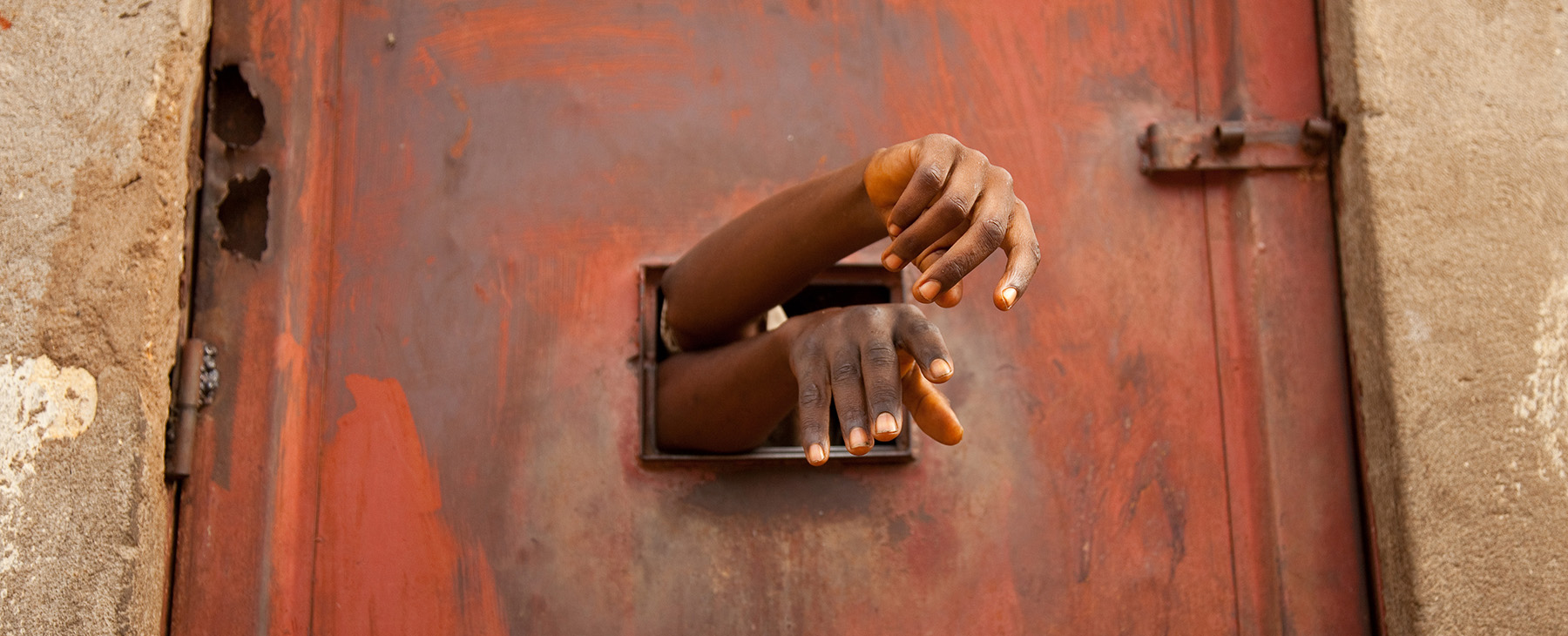
In December 2015, attacks by unidentified armed persons on military bases triggered a wave of repression by Burundian law enforcement agencies. Those most affected by this repression were those opposing the government.
Miriam (real name withheld) was a member of an opposition party in Burundi. The day after the attacks, and without any authorisation, soldiers came to her home to carry out a search, during which one of the soldiers “found” a weapon. Miriam did not know where that weapon came from.
Despite her protests, Miriam was taken by the military and then handed over to a group of police officers who beat her with a baton and made death threats. She was then held in police custody for about 10 days, during which her rights to medical attention and to consult with a lawyer or family member were systematically denied. Miriam then faced the judicial authorities, by whom she was interrogated and placed in preventive detention.
Miriam’s trial resulted in a heavy sentence for illegal possession of firearms, even though she continually denied knowing the origin of the weapon allegedly “found” in her home.
Facts denounced, but still unacknowledged
Miriam denounced the torture she had been through on several occasions. However, no investigation had been undertaken by the Burundian authorities to recognise these acts or identify those responsible. Almost four years later, Miriam continues to suffer the psychological consequences of these abuses.
Given the total impunity enjoyed by her torturers, it is not impossible that one day Miriam or her relatives may be subjected to reprisals. In view of this situation and in view of the obstacles to national justice, TRIAL International brought the case before an international body. It requests that protective measures be granted to her, investigations be carried out in her case and those responsible punished.
Sonja Maeder-Morvant joined the Committee of TRIAL International in May 2019. An attorney-at-law at the Geneva Bar, she specializes in economic crimes and international mutual assistance in criminal cases.

What has been your journey before joining TRIAL International’s Committee?
I was born in Germany and completed my education in Switzerland. I then moved to Geneva to study law, which is where I first met Philip Grant! Since then, I have mainly pursued my career in Geneva: after passing the Bar, I spent a little less than a year at the Office of the Attorney General of Switzerland. I then gradually specialized in cases related to economic crimes: corporate liability, money laundering, corruption, etc.
After becoming self-employed, I was keen to reconnect with my first love: human rights. It was at that time that I heard TRIAL International was seeking to renew its Committee.
What did you know about the organization at that point?
As mentioned, I met Philip Grant during our studies at the Geneva Academy. At the time, I even contributed to the Trial Watch database as my thesis dealt with the amnesty law in Sierra Leone.
Since then, I followed TRIAL International’s activities from afar. Even from the outside, I was impressed by this small organization, starting from scratch, that could achieve such results. With a great deal of patience and limited resources, it has successfully established itself among Geneva’s civil society.
What aspect of TRIAL International’s work speaks to you most?
As a lawyer, I like that its mission is so concrete. Investigating, prosecuting, obtaining tangible decisions… this speaks to me more than drafting reports and building capacity, even if these aspects are also important.
Among the crimes addressed by TRIAL, I am particularly interested in the defence of women’s rights and the fight against sexual violence.
In your opinion, what is the biggest challenge in the fight against impunity?
Without hesitation, political interference in legal proceedings. When legally sound cases, which objectively would have a high chance of success, get mired in deadlock and go nowhere… It’s incredibly frustrating. And yet it can happen all over the world! Sometimes in a blatant way and sometimes in a more subtle way.
What do you think is your contribution to TRIAL International’s Committee?
I hope that my practical experience will be useful to the organization, for example in dealing with prosecution authorities or the handling of criminal cases with an international component. Finally, I hope to strengthen the links between TRIAL and the Bar Association.
In Burundi, opposition to President Pierre Nkurunziza’s bid for a third mandate was met with repression across the country. Militants and political activists who openly opposed the party in power are in the frontline.
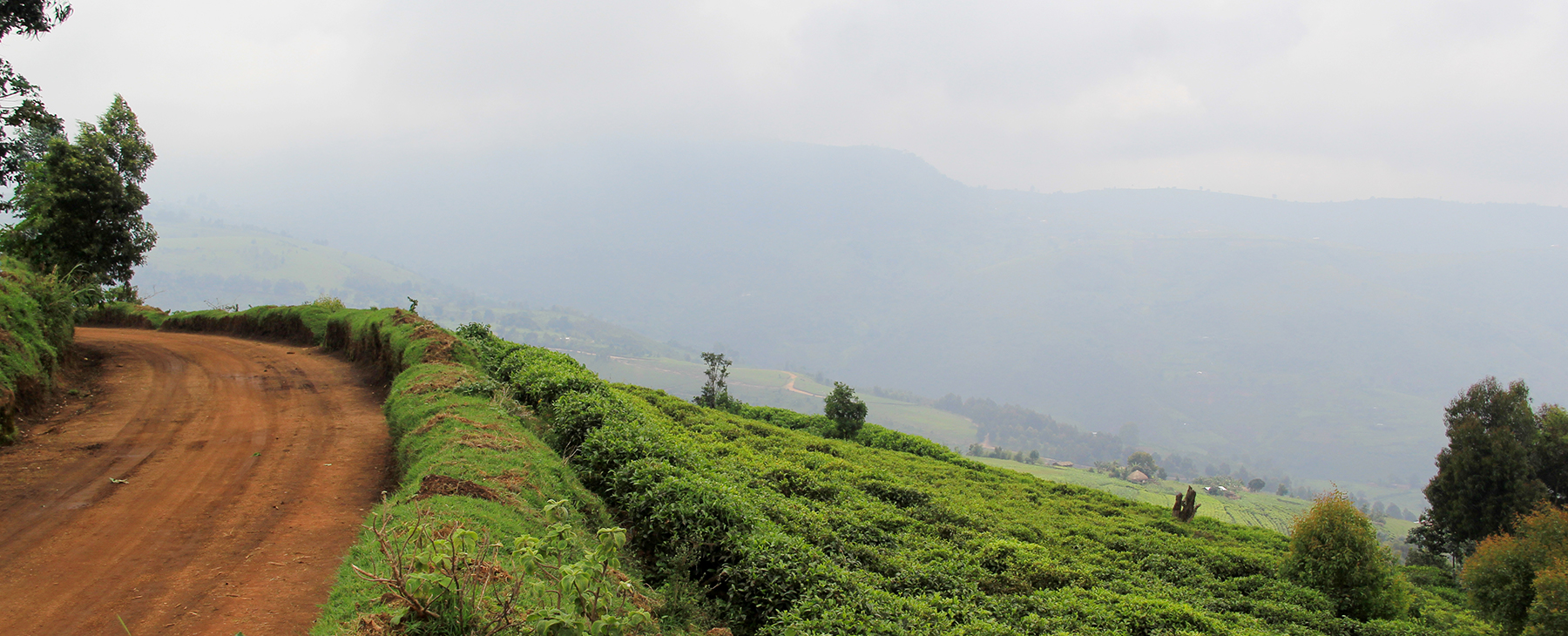
Francis (real name withheld) was a member of a political party that actively campaigned against the president’s prospective third mandate. As many of his colleagues, he went into exile in a neighboring country to escape the grip of security services.
A first homecoming resulting in an arrest
His first exile lasted a few weeks. Francis then tried to go back to Burundi, but was quickly arrested and detained by the Imbonerakure, the governing party’s militia. During a week, he suffered many severe beatings. As soon as he was set free, fearing for his life, Francis returned into exile.
A few months later, Francis was offered what might have been a way out: a scholarship to study abroad. Only problem was: in order to go, he had to renew his identity documents – in Bujumbura, Burundi’s capital city.
Disappeared without leaving any trace
Francis took all the necessary precautions to enter the country unnoticed by law enforcement agents. Although he had been able to cross the border without any difficulty, a brawl happened to break out close to where he was making a stop. State agents were sent in to raid the place and arrested several people who were thought to have been the troublemakers. Francis, although he had absolutely nothing to do with the whole situation, was taken in by the police.
What happened next remains uncertain: he seems to have been driven out of the city in a police vehicle, but was never seen again after that. In spite of his family’s attempts to find him, Francis is still missing.
As the Burundian authorities have proved inactive in trying to shed light on the matter, TRIAL International has taken the case to the international level. The procedure is pending.
The United Nations Human Rights Council has prolonged the mandate of the Commission of Inquiry on Burundi for one more year. TRIAL International is convinced this mechanism is crucial to address the human rights crisis in the country.

On 27 September 2019, the United Nations in Geneva have voted to extend the work of the Commission of Inquiry (CoI) by another 12 months. This mechanism investigates the human rights situation in Burundi, a country which for years has been plagued with political oppression and serious abuses. It was established in September 2016 and its mandate has since been renewed twice.
TRIAL International had explicitly called for the renewal of the CoI’s mandate. In a statement co-signed in August 2019, it reminded that the Commission was the only existing independent mechanism to monitor Burundi:
“The work conducted by the CoI provides critical oversight of the human rights situation in Burundi. (…) Over the last year, the Burundian Government forced the Office of the UN High Commissioner for Human Rights (OHCHR) to leave the country, (…) (and) suspended the operating license of the Voice of America and revoked the license of the BBC, and forced at least 30 international non-governmental organizations to cease their activities.”
Read the full allocution to the UN Human Rights Council
The international community needs to pay heed
Prolonging the existence of the Commission of Inquiry also means that Burundi will stay at the top of the international agenda. Never has this monitoring been more important: the CoI has already warned that, with elections looming in 2020, “all common risk factors for criminal atrocities were satisfied in Burundi”.
Read more on the Commission’s latest conclusions
Finally, whereas documenting atrocities may seem futile in the present context, it remains the only way for victims to access justice in the future.
“Documenting crimes will allow, when the time comes, to prosecute the perpetrators – including by other legal means than the ones we can envisage today. Only then can the rule of law prevail in Burundi, and future crises be prevented”, concluded Pamela Capizzi, Burundi expert at TRIAL International.
Read the full op-ed by Pamela Capizzi on avenues to justice for Burundian victims
An op-ed by Pamela Capizzi
Withdrawal from the International Criminal Court, refusal to collaborate with the UN, political isolation… Burundi seems to be turning its back on every institution capable of bringing justice to its oppressed population. But Pamela Capizzi, Burundi expert at TRIAL International, believes that justice remains within reach if everybody plays their part.

Despite Burundi’s growing political isolation, victims of atrocities can file complaints to other regional or international bodies to obtain justice. © Landry Nshimiye
“TRIAL International has been working on Burundi since 2011. In accordance with its principles, our organization sought for a long time to litigate its cases domestically, in order to be as close as possible to the victims it defended.
Unfortunately, it has become obvious that the Burundian judiciary is plagued with numerous and deep dysfunctions. The current crisis, which has started in 2015, has only worsened this situation. Files have been “lost”, effective investigations were never initiated, and decisions to free political opponents have simply been ignored.
In the face of this bleak picture, should we abandon all hopes of justice? I do not believe so. Other avenues are available to the victims we support.”
Regional and international bodies
“Without doubt, the most promising possibility is the ongoing investigation by the International Criminal Court (ICC). Opened in 2017, it focuses on alleged crimes against humanity committed between April 2015 and October 2017. However, under certain conditions, the investigation could be broadened to other crimes and/or a more extended period.
The limit of this solution is that impunity is a generalized phenomenon in Burundi, and the ICC cannot solve it alone. Its action is limited to the prosecution of those bearing the greatest responsibility for the committed atrocities, and not all the actors involved in their commission.
Other, so-called “quasi-judicial” mechanisms exist at the regional and international level. Unlike the ICC, they do not focus on trying individuals but the Burundian State itself.
The most relevant bodies in this case are the African Commission on Human and Peoples’ Rights, and the UN Committee Against Torture. But the weakness of these mechanisms lies in the non-binding nature of their decisions. At the end of the day, the State is responsible for their enactment. An unlikely outcome, given the growing isolation of Burundi on the international scene, and the proven partiality of its judiciary.”
Prosecutions abroad made possible by universal jurisdiction
“So, could the solution lie with the States themselves? Thanks to the principle of universal jurisdiction, several countries have the legal set-up to prosecute suspects of international crimes, regardless of where they were committed. Therefore, Burundian criminals could be brought to justice as far afield as in Switzerland, South Africa or Canada.
Universal jurisdiction has demonstrated its efficiency, but it is not foolproof and several conditions must be fulfilled for its application. It remains, to this day, an innovative way to justice that has been little-explored – or not at all – in the context of Burundi.”
A single necessity remains: documenting the crimes today
“Given the limitations of each of the aforementioned mechanisms, rigorous and independent documentation of ongoing crimes is paramount. That’s why TRIAL International calls for the extension of the Commission of inquiry’s mandate.
Documenting crimes will allow, when the time comes, to prosecute the perpetrators – including by other means than the ones we can envisage today. Only then can the rule of law prevail in Burundi, and future crises be prevented.”
Pamela Capizzi, Legal Advisor
They terrorized a dozen villages in South Kivu. Arrested in April 2019, rebel leader Frédéric Masudi Alimasi, alias Kokodikoko, and four of his accomplices must now answer for their crimes. The large-scale trial involves more than 300 victims, mostly of sexual violence.
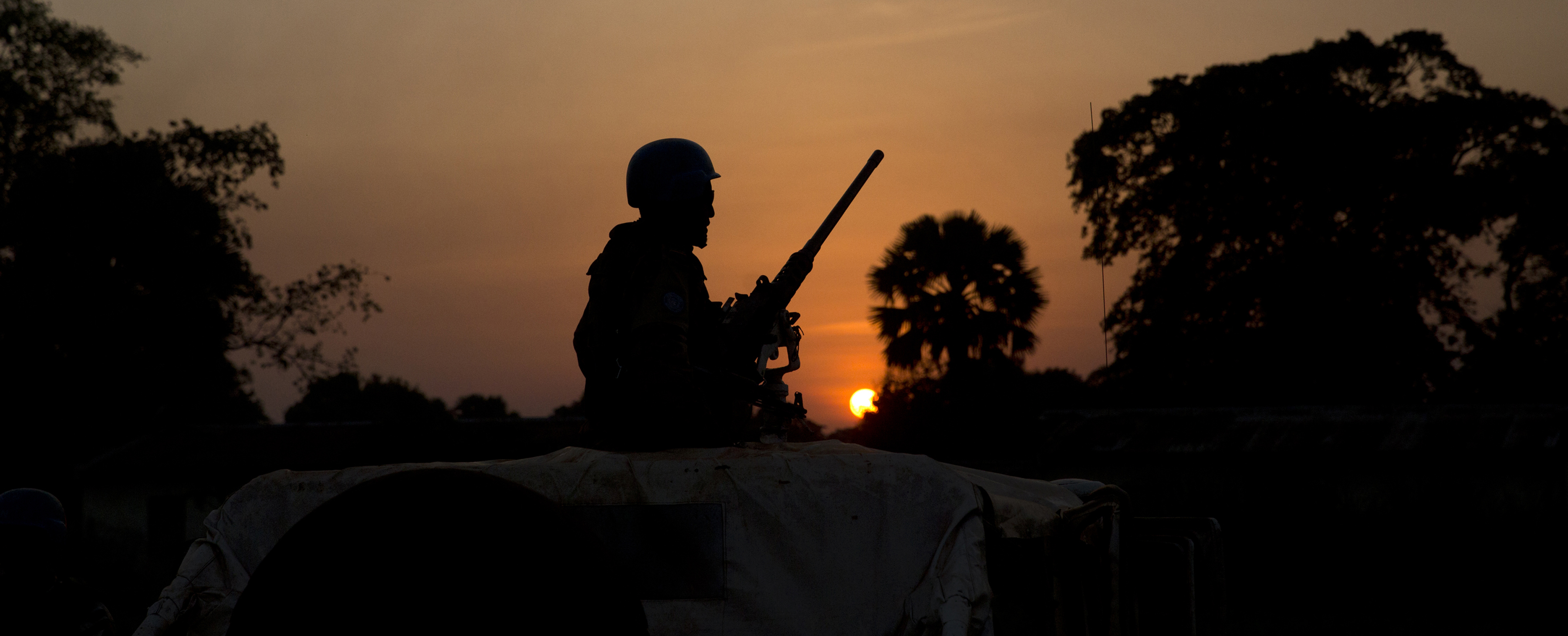
As of 12 September 2019, the Bukavu Garrison Court (South Kivu) is hearing the case of five members of an armed group that is infamous in DRC, namely Raia Mutomboki Kokodikoko. Its leader Frédéric Masudi Alimasi, who goes by the nom de guerre Kokodikoko, was captured by the army in April 2019 during a peacekeeping operation in the Shabunda territory.
From February to September 2018, Kokodikoko and his men—sometimes together with other Raia Mutomboki factions—persecuted civilians in more than fifteen villages and were involved in murders, rapes, sexual slavery, torture, forcible detention, looting and destruction of property. The crimes claimed hundreds of victims in two territories of the South Kivu province (Mwenga and Shabunda) and could amount to crimes against humanity.
Presented to the judges for the first time on 3 September 2019, the five accused admitted to being part of the armed group Kokodikoko. Kokodikoko himself was its brigade commander, while Kaburi Wazi Samitamba was the group’s administrator and logistician. The other three accused were simply fighters.
Document the crimes quickly in hopes of a trial
As part of this case, TRIAL International and its partners* had already begun documenting the crimes committed by the group even before Kokodikoko was arrested. This is a common strategy that helps collect evidence whose probative value decreases over time, such as medical elements and witness statements.
“If we waited for a trial to begin to document mass crimes, evidence would escape us on a large scale”, explains Chiara Gabriele, Legal Advisor for TRIAL International in DRC. “When security permits it, we quickly document the crimes after they have been committed in order to be able to react swiftly when the suspects are arrested.”
By assisting victims, TRIAL also contributed to additional investigative missions.
Court hearings in three different locations
With a view to bring justice closer to the people affected, some of the hearings in the Kokodikoko case will take place at the crime locations. As such, the judges, the accused and the court will travel to areas affected by the militia.
It was TRIAL International’s expertise that helped establish that the crimes committed in the territories of Mwenga and Shabunda were the actions of the same group. After noticing a similar modus operandi and based on the evidence gathered, the crimes committed within the two territories were added to the same case. TRIAL International remains involved in the legal strategy and the follow-up with lawyers representing the victims.
*TRIAL International’s contribution to this case is carried out in the framework of the Task Force for International Criminal Justice, an informal network of international players who work together to support the work of Congolese military courts in investigating and prosecuting mass crimes in DRC.
Former Bosnian Serb police officer Darko Mrđa will have to serve a 20 years sentence for crimes against humanity. In August 2019, the Panel of Section I for War Crimes of the Appellate Division of the Court of Bosnia and Herzegovina confirmed the first instance Judgment, and added a further five years to the original sentence.
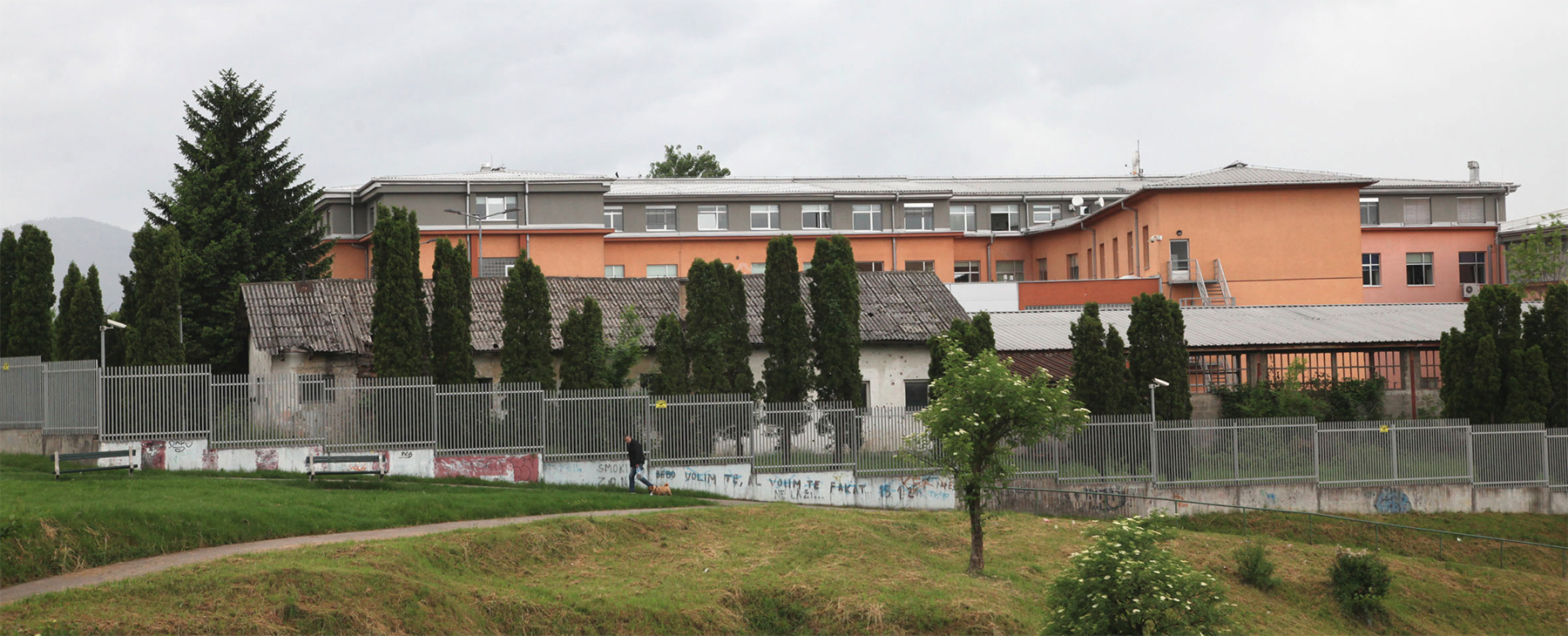
In December 2018, the Court of BiH sentenced Mrđa to 15 years in prison for crimes against humanity that he committed in Prijedor. The Appellate Division of the Court confirmed this sentence, and took into consideration another 17 years sentence, rendered by the ICTY after Mrđa pled guilty to the killing of 12 civilians in Korićanske Stijene. As a result, a combined sentence of 20 years imprisonment was pronounced.
Together with the Association of Prijedor Women “Izvor”, TRIAL International supports families of missing persons from the Prijedor area. Thanks to the NGOs’ efforts, the case of Said Sadić, who was killed by Mrđa in in 1992, was included in the 50 cases submitted to the Constitutional Court of BiH. Between 2012 and 2013, the Constitutional Court of BiH ordered local authorities to conduct a thorough investigation into these cases, finally resulting in the indictment being raised against Darko Mrđa.
Portraits of volunteers #5
Since 2018, twelve volunteers have taken on the specific mission of translating TRIAL International’s website news. To thank them for their invaluable commitment, the “Portraits of volunteers” series gives them the floor. In this fifth episode, Daniel Eck tells us about his experience.
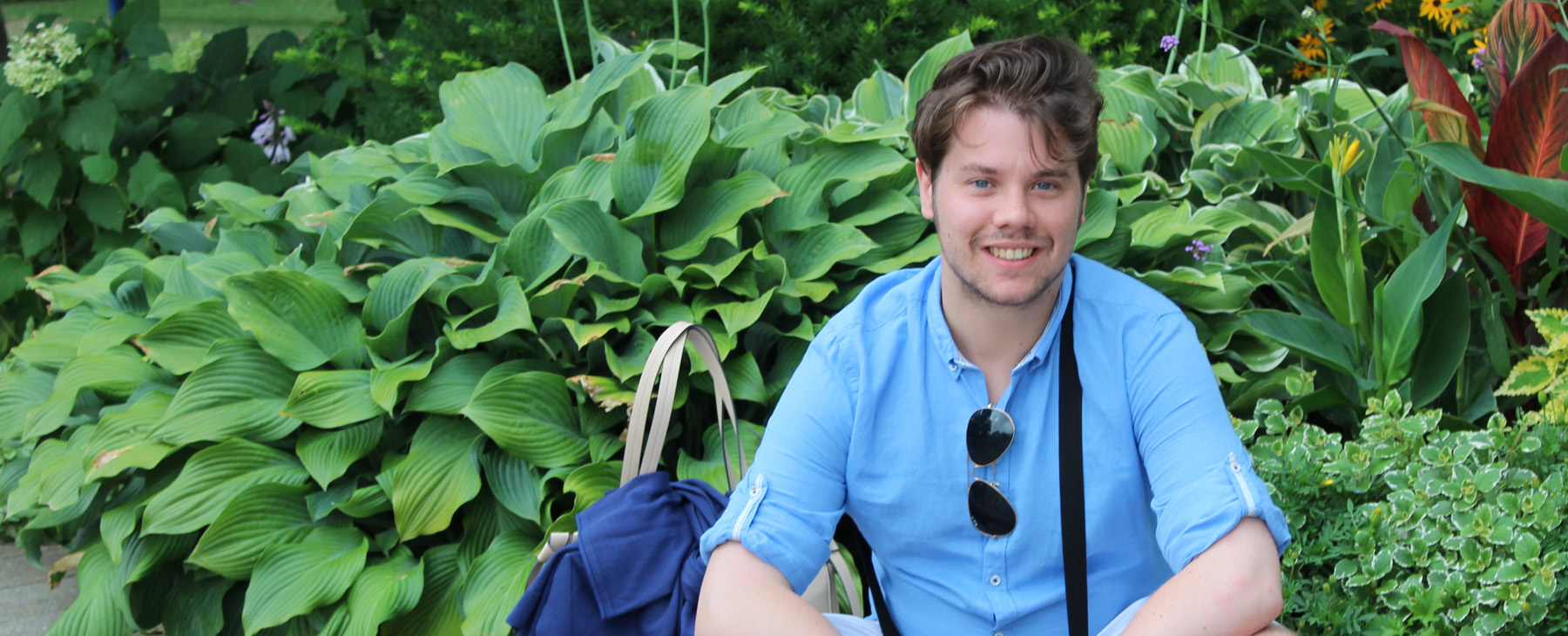
Could you introduce yourself?
I grew up trilingual in French, German and English in Strasbourg (France). I then studied European and international law in the United Kingdom and the Netherlands, before gaining work experience in the field of human rights, international criminal law and humanitarianin several countries. I am currently working as a translator with the media organisation Euractiv in Brussels (Belgium). My interests are reading, travelling and musical composition.
How did you hear about TRIAL International?
I discovered the organization because I had long been interested in international justice and was looking for opportunities in this field. Having already worked as a freelance translator, both paid and unpaid, I was very interested in this volunteering opportunity. Since I started in 2016, I have improved my skills in communications, time management and translation.
What aspects of TRIAL International’s mission speak to you most?
TRIAL focuses on prosecution at domestic and regional levels, an approach with which I agree. I have experienced first-hand the importance of justice at the local level. My experience at the International Criminal Court has shown me the limits of this institution, which is slow and sometimes lacks efficiency.
I also believe that my experience at TRIAL will benefit my career because I intend to keep working in European or international affairs, and more specifically in the humanitarian field.
Read the interview of Alice Murgier
Read the interview of Stefanie Ujma
Inhumane working conditions, child labor and pollution from mines: the IniMulti initiative submitted in 2016 aims to put an end to these unacceptable practices. On the eve of its review by the high chamber of Parliament, a new case is emerging which implicates a Swiss company, who have been previously challenged by TRIAL International.
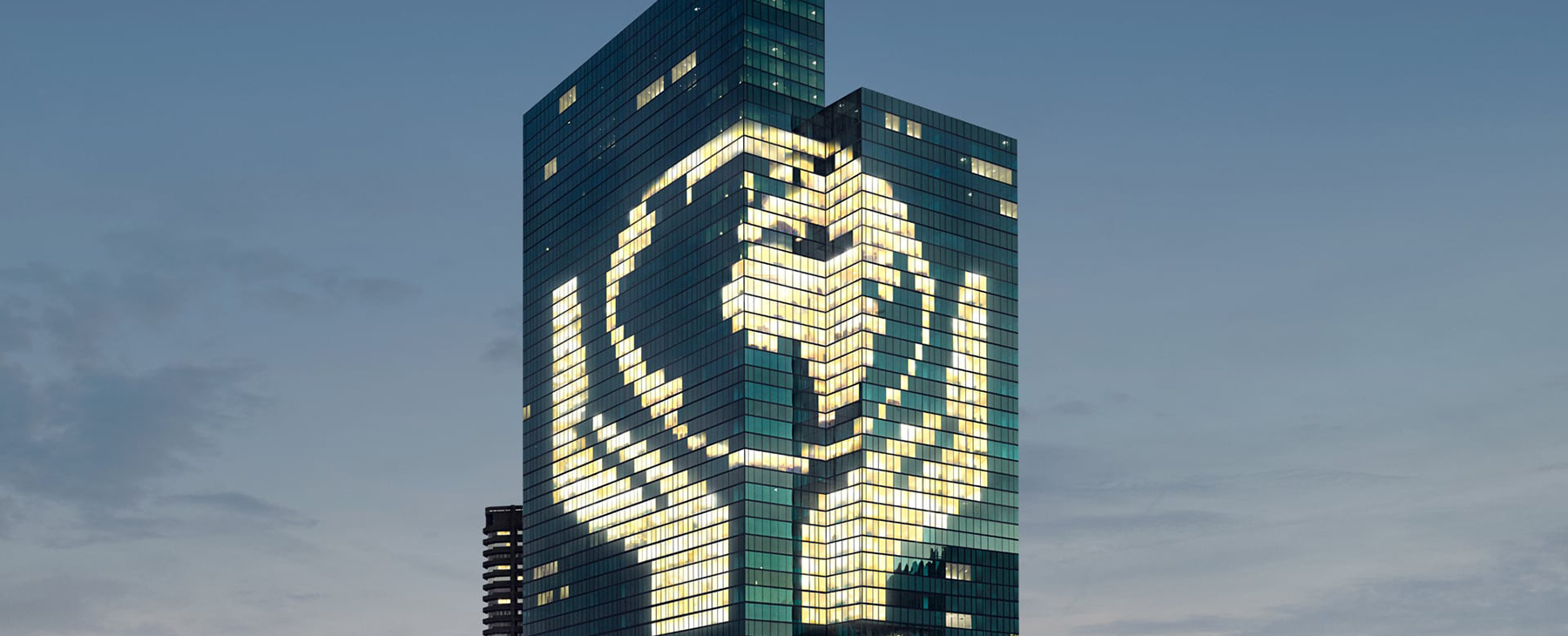
Switzerland, where many multinationals have established their headquarters, should bears some responsibility for setting a benchmark. However, the scandals that have been in the news show that affirmative action is not enough.
The most recent report, published on 10 September 2019 by Swiss Catholic Lenten Fund, reveals links between the Argor-Heraeus SA refinery and a Colombian gold supplier. According to the NGO, from 2009 to 2018, the refiner in the Ticino canton bought between five and nine tons of gold per year from the Colombian supplier, even though the latter was accused of money laundering, illegitimate enrichment and criminal association.
It is not the first time that Argor-Heraeus SA has accused of questionable practices. In 2013, the company was indicted for refining looted gold in the Democratic Republic of Congo.
Holding companies to account
TRIAL International has been fighting for years against corporate impunity for human rights violations. The organization therefore supports this initiative, which seeks to introduce a bill requiring due diligence on the part of corporations.
The bill will require companies to check if their activities abroad lead to human rights violations or harm the environment, and to document all remedial actions they undertake.
Corporations in breach of their duties of due diligence could be held accountable for their acts of omission or commission in a Swiss court. The ensuing financial consequences and damages to their corporate image could sway corporations to take appropriate measures and take responsibility for all of their activities.
The Federal Council opposes the initiators
The initiative has already been the subject of two counter-projects, the first one by the National Council, the lower Chamber of Parliament. The second, proposed by Federal Councilor Karin Keller-Sutter, greatly waters down the initiative by considerably reducing the multinationals’s duties in terms of due diligence.
It is now up to the higher Chamber of Parliament, the Council of States, to work on its own counter-proposal. A verdict is expected in the autumn session of Parliament. The latter could propose an indirect counter-project, i.e. an amendment to the law – and not to the Constitution – which would enter into force if the text of the initiative were to be rejected at the polls.
